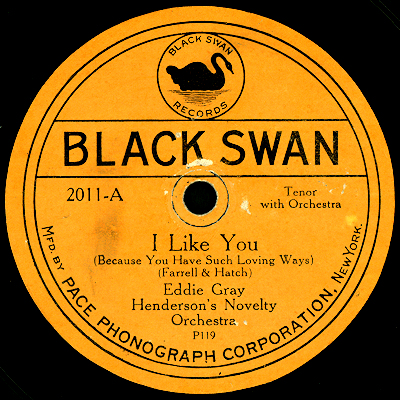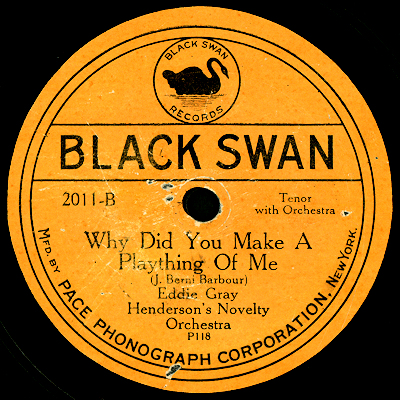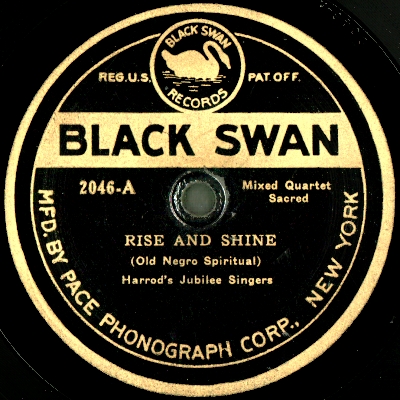 |
 |
| I Like You (Because You Have Such Loving Ways) |
Why Did You Make A Plaything of Me |
| Eddie Gray with Henderson's Novelty Orchestra |
Eddie Gray with Henderson's Novelty Orchestra |
| Black Swan 2011-A |
Black Swan 2011-B |
| Matrix# P119^2 |
Matrix# P118^1 |
| ca. April 1921 |
ca. April 1921 |
| New York, New York |
New York, New York |
| Note: Very worn, especially at start. |
Note: Edge chip into the first nine playing grooves, so first few seconds omitted. Very worn. |

